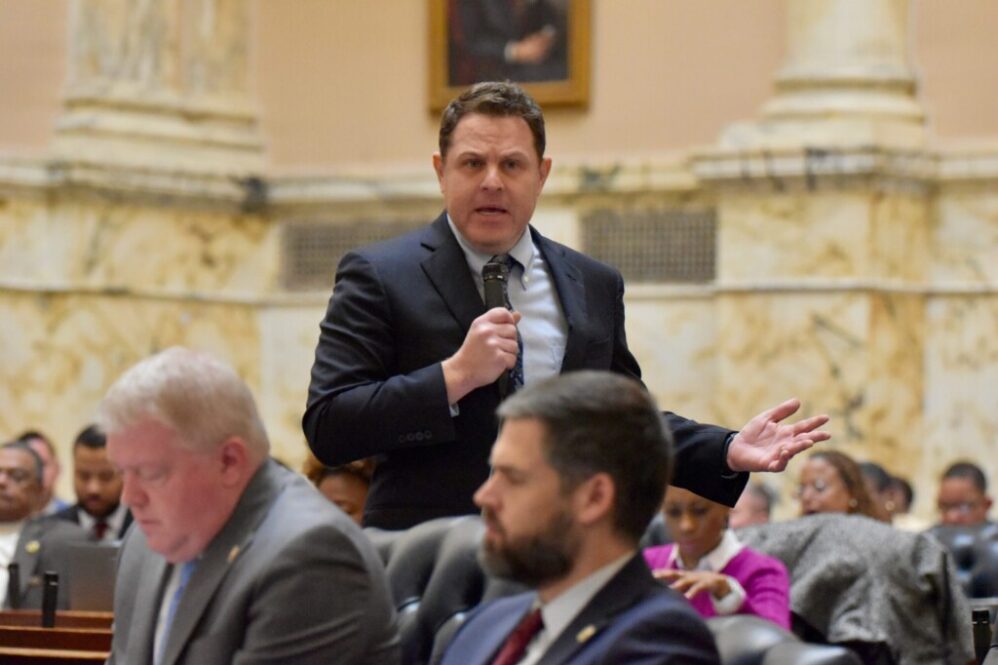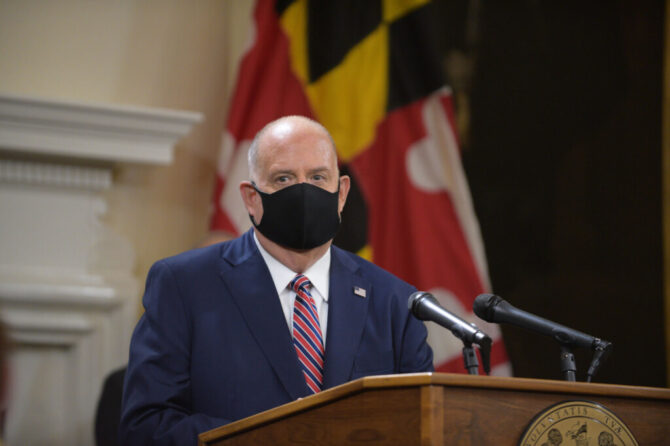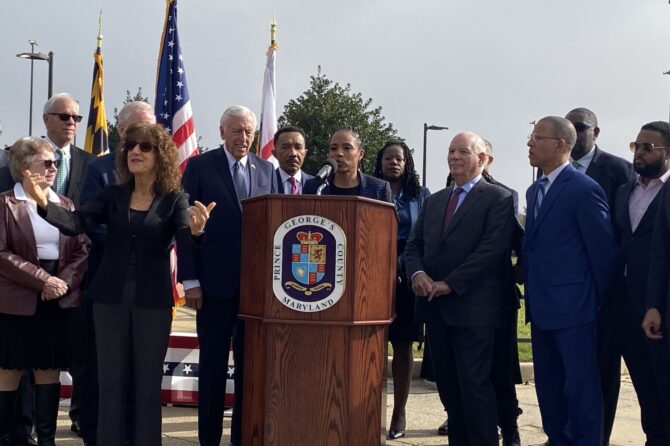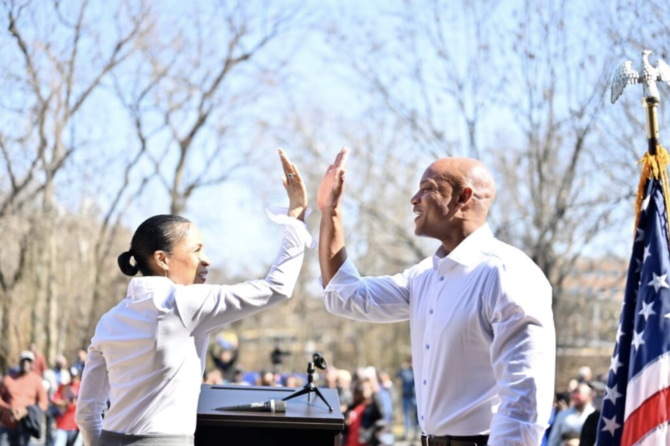MARYLAND MATTERS: General Assembly budget leaders are one step closer to a fiscal showdown after the House of Delegates gave preliminary approval Wednesday to its version of the fiscal 2025 budget.
The $63 billion spending plan is similar to the budget passed by the Senate. The two chambers differ significantly on undergirding this and future budgets with a $1.3 billion tax and gaming expansion package.
Senate leaders including Senate President Bill Ferguson (D-Baltimore City) have dismissed iGamingand combined tax reporting for corporations as nonstarters. Even so, House Appropriations Chair Ben Barnes (D-Prince George’s and Anne Arundel) expressed optimism for a deal with the Senate.
“I think the entire package we’re sending over is doable,” he said. “I think when we sit down to negotiate with the Senate, we’ll put everything on the table for them. We certainly understand that the House is not unicameral. We don’t get to make all the decisions. I think the Senate understands that as well. I think that we’ll have to sit down and reach a compromise, but any compromise would have to have real solutions, from our perspective.”
Fiscal storm clouds are gathering.
Legislative budget analysts warned in January of a projected $1 billion for fiscal 2026. A year later, the last year of Gov. Wes Moore’s term, the deficit is projected to top $1.3 billion. In fiscal 2028, it more than doubles to $3 billion — about 12% of the general fund revenues projected for that year.
Almost all of the deficit is driven by growth in the state’s Blueprint for Maryland’s Future — a multibillion-dollar K-12 education funding reform effort.
Not included in that estimate is a more than $3 billion shortfall over six years in the state’s Transportation Trust Fund.
Barnes and other House leaders say the fiscally responsible approach is to find revenues now. That differs from the approach favored by Senate Democrats.
“The Senate’s position is really we want to focus on competitiveness and growth,” Ferguson said Tuesday. “We think that that’s going to be core to where we are and assess where we are next year.”
Moore has repeatedly said “the bar is high” for him to consider any tax increases.
But the version of the budget that won preliminary approval in the House Wednesday is contingent on tax and fee increases contained in a companion budget reconciliation bill.
Included in that package is roughly $900 million in taxes and fees including the elimination of the sales tax exemption on vehicles traded in to dealers; electric vehicle surcharges; increased registration fees based on revised vehicle weight classes; and increasing the vehicle excise tax from 6% to 6.5%.
The state also expects to collect $300 million from expanding gaming through iGaming, which would bring casino-style games to phones and other electronic devices.
Money raised by the House plan goes to either the Blueprint or the Transportation Trust Fund. Democrats in that chamber claim the plan eliminates the transportation project funding gap and negates the need for the Transportation Revenue and Infrastructure Needs Commission to continue meeting. A House amendment to the budget reconciliation bill eliminates the commission, which was supposed to meet through 2024 before presenting recommendations for modernizing the state’s Transportation Trust Fund.
“We don’t think we need two solutions,” said Barnes, in explaining the decommissioning of the blue-ribbon panel. “We have one solution.”
Democrats, who outnumber Republicans more than 2.5-1 in the House, rejected more than a half-dozen amendments on both budget bills.
“It seems fair to suggest, after these votes, that funding the Blueprint is only a priority if it can be used as a rallying point to raise revenues,” said House Minority Leader Jason C. Buckel (R-Allegany). “Before we raid the wallets of taxpayers, we need to reprioritize our spending. These amendments were offered to do just that. After being told that education spending is the top priority of Maryland Democrats, today it took a back seat to salary increases for criminal defense lawyers and publicly funded abortion services.”
A final vote in the House is expected Thursday. The differences between the two chambers will be worked out in a conference committee between the two chambers. That committee will not likely meet before next week.
Ferguson and Senate Budget and Taxation Committee Chair Guy Guzzone (D-Howard) said the situation is not yet dire. Instead, they favor a year-to-year approach, at least for now.
“We’ve been consistent for months,” Ferguson said. “It is what it is. It’s a hard no on iGaming and a hard no on combined reporting. Those are not things we’re going to be taking up this year. Appreciate the perspective of the House, again we share similar values and where we want to go in the long run, in terms of what we want to invest in. How we get there is where the difference is.”











